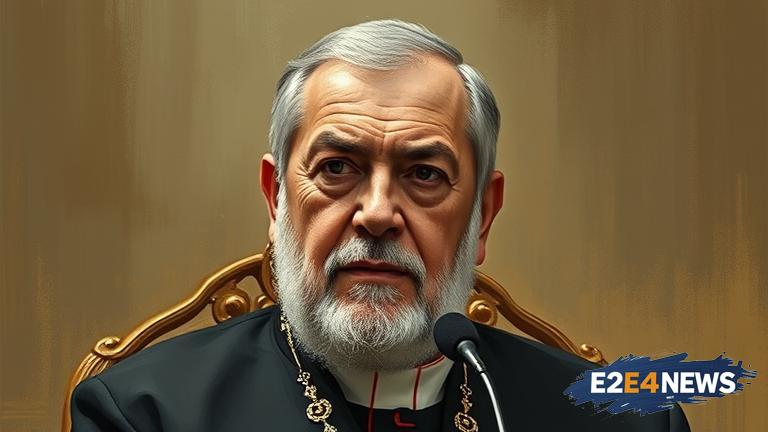The Armenian prosecutor’s office has refused to provide any updates or comments on the case involving Catholicos Karekin II, the spiritual leader of the Armenian Apostolic Church. This decision has sparked widespread interest and speculation among the Armenian public and international community. The case, which has been ongoing for several months, has raised concerns about the independence of the church and the role of the government in religious affairs. Catholicos Karekin II has been at the center of the controversy, with some accusing him of corruption and mismanagement of church funds. The prosecutor’s office had launched an investigation into the allegations, but so far, no official statement has been made. The lack of transparency and communication from the prosecutor’s office has led to frustration and disappointment among many Armenians, who are eager to know the truth about the case. The Armenian Apostolic Church is an ancient and revered institution in Armenia, and the current controversy has shaken the faith of many believers. The church has a long history of playing a significant role in Armenian society, and its leaders are expected to uphold the highest standards of integrity and morality. The government of Armenia has also been criticized for its handling of the case, with some accusing it of interfering in the internal affairs of the church. The international community has been watching the developments in the case with interest, and some have expressed concern about the potential implications for religious freedom and human rights in Armenia. The European Union and other international organizations have called on the Armenian government to ensure that the investigation is conducted fairly and transparently. The case has also sparked a debate about the role of the church in Armenian society and the need for greater accountability and transparency in its operations. Many Armenians are calling for reforms within the church, including the introduction of more democratic governance structures and greater financial transparency. The current controversy has also highlighted the need for greater separation between church and state in Armenia, and for the government to respect the independence of the church. The prosecutor’s office has a responsibility to ensure that the investigation is conducted fairly and that the rights of all parties involved are respected. The Armenian people have a right to know the truth about the case, and it is the responsibility of the authorities to provide them with accurate and timely information. The case is a test of the Armenian government’s commitment to transparency, accountability, and the rule of law, and its outcome will have significant implications for the country’s democratic development and international reputation.
